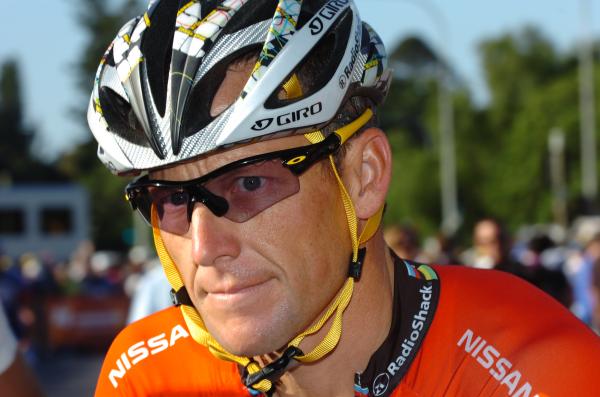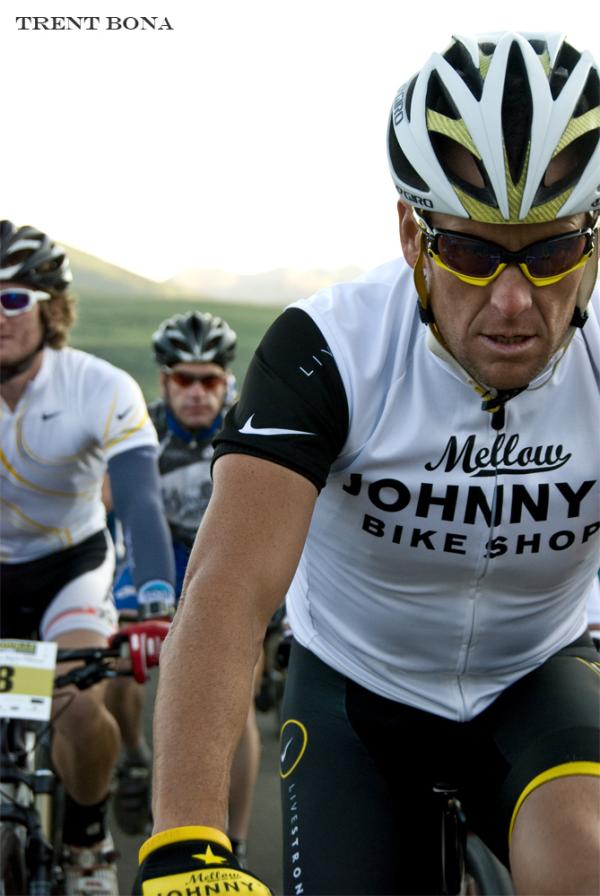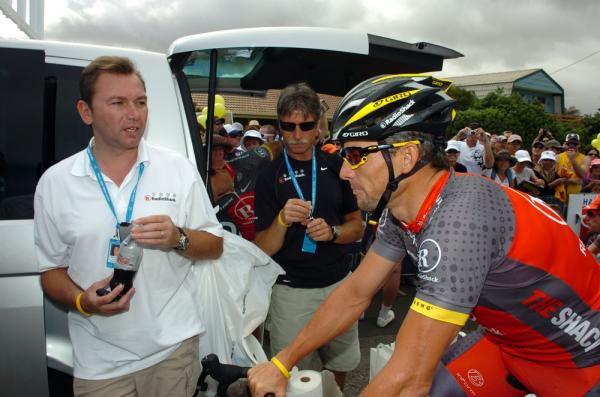Armstrong lawyers ready for Federal battle
Lance’s legal team tell CN that they’re awaiting grand jury developments



Despite little in the way of public developments in the Federal drugs investigation, Lance Armstrong, the seven-time Tour winner continues to surround himself with some of the best legal practitioners in the US. A grand jury has yet to make a decision on whether indictments will be served, but one legal expert has told Cyclingnews that such a delay can be typical of proceedings in the US. And Armstrong’s lawyers have told the website that they are unaware of the government’s future plans.
“It’s been extremely quiet,” Mark Fabiani told Cyclingnews. Fabiani, one of Armstrong’s leading legal representatives from a team that now stands at six, and which includes John Keker and Elliot Peters heading affairs. Bob Luskin, Tim Herman, and Bryan Daly are also representing Armstrong.
“The only thing that’s happened over the summer is that Armstrong’s lawyers filed a motion complaining about the leaks of information about the case from the government,” Fabiani said. “The judge took that motion under seal and has made a decision under seal so it hasn’t been released yet. That’s really the only thing that’s happened. As far as things go it’s been extremely quiet, and we’re not aware of any new witnesses going to the grand jury. We’re not aware of any grand jury activity whatsoever. It’s been silent.”
Fabiani told Cyclingnews that he is unaware of how many individuals have been called before the jury to date, estimating at ten, but confirmed that reports that George Hincapie had testified were unfounded. It had been speculated that the former teammate of Armstrong had given a sworn testimony to the jury. However, the BMC rider only talked to Federal agents - a different level of inquisition from a grand jury appearance.
“It’s the cycling world and it’s a small world, so when witnesses are going before the grand jury at least in the past we’ve always known about it. In addition journalists from the AP stake out the grand jury room in Los Angeles every Wednesday afternoon so they know who is coming and going and they’ve not reported anybody since last October,” Fabiani said.
“It seems like less than ten, if I had to guess. So some of the people the press may have thought have gone before the grand jury really haven’t. Based on what we’ve heard from our own sources and the AP, the number is ten or less.”
Despite the lack of public activity, Armstrong continues to rack up bills from his team of lawyers. His recruitment policy is perhaps the single most important indication that he is still taking the possibility of a criminal case seriously.
Get The Leadout Newsletter
The latest race content, interviews, features, reviews and expert buying guides, direct to your inbox!
Peters specialises in drug and white collar cases and was named one of the top 20 lawyers in the US by The Recorder. One of his biggest cases involved the Major League Baseball Players Association over privacy in steroid test results. He won the case. Along with Keker, Peters filed the motion in August over leaked government information but his expertise lies in trial cases, something that would only occur if Armstrong was first indicted and then failed to settle before trial.
“Keker and Peters, they’re really calling the shots now,” Fabiani told Cyclingnews.
“Those are the two that wrote the motion on the leaks and those are the guys that really call the shots and are leading the legal team now.”
“Not only are they excellent lawyers but they were involved in the baseball league association in a very similar case, where information from a federal investigation was leaked to the media, so they’ve got a lot of dealing directly with Jeff Noviztky, the Federal agent that was working on that case and is now working on this case. And they understand how he works and the way the system worked in the baseball case. It’s worked in a similar fashion here and that experience is vital.”
Luskin’s recruitment in 2010 is also telling. Based in Washington, he specializes in criminal and civil litigation at both the trial court and appellate level. He works for Patton Boggs law firm, which in itself claims to work closely with the US Congress. Earlier this year he called the 60 Minutes show on Armstrong "atrocious and unfortunate."
“Bob brings the Washington perspective. He understands how the justice system works and has been through a great number of high profile cases. That’s certainly what he brings to the rest of the team,” Fabiani said.
Daly, added to the team in July 2010, is based in California, where the grand jury has convened and he specialises in both criminal defence and civil litigation. He has worked on a number of whistleblower cases.
Fabiani, dubbed the ‘master of disaster’, worked under the Clinton administration and has been Armstrong’s main voice when dealing with the media over the last 12 months.
As a rider one of Armstrong’s strongest achievements was building a solid team around him. He would recruit riders who would devote all their energies to helping him win the Tour, and in some cases he would even sign general classification threats in order to nullify opposition and increase his own chances of success.
According to Mark Stichel of Gohn, Hankey & Stichel, LLP, the strength of Armstrong’s legal team is a telling point in the seriousness of the case.
“He’s hired an impressive legal team, which is probably costing him a fair amount of money. It shows that he’s taking the investigation seriously,” Stichel, who has worked in grand jury trials previously, told Cyclingnews.
“This a very high powered team, pulled together from a number of firms across the country. Luskin is from Washington, Armstrong has lawyers in Los Angeles and lawyers in Austin, and he’s definitely pulled together a high powered team that says that he’s looking at this at more than just a local event and that there’s the potential for wide-ranging implications. He’s preparing to deal with that.”
While Fabiani told Cyclingnews he was not in a position of comfort or knowledge to discuss Armstrong’s potential legal fees, Stichel gave an indication of them.
“These people will charge heavily on hourly rates. But each one of these people is at the top of a group of lawyers and each of their respected firms would have other partners and people working under them doing research and preparing background. That’s a huge expense. I’m sure he’s spent over a million dollars. I can’t say if it’s around two, three or five million.”
One caveat is that within the US legal system top level lawyers can work for reduced fees on cases of such high profile in order to gain personal publicity for themselves and their firms.
“You can read all kinds of things into the delay. Maybe they’ve heard from all the people they need to and they’re wrapping up their work. It’s very difficult from the outside to know what’s going on.
“I represented a client in a civil case while the defendant was also under investigation by a grand jury. There were several phases where the jury would be active and then times when things wouldn’t happen for several months,” he told Cyclingnews.
Daniel Benson was the Editor in Chief at Cyclingnews.com between 2008 and 2022. Based in the UK, he joined the Cyclingnews team in 2008 as the site's first UK-based Managing Editor. In that time, he reported on over a dozen editions of the Tour de France, several World Championships, the Tour Down Under, Spring Classics, and the London 2012 Olympic Games. With the help of the excellent editorial team, he ran the coverage on Cyclingnews and has interviewed leading figures in the sport including UCI Presidents and Tour de France winners.
